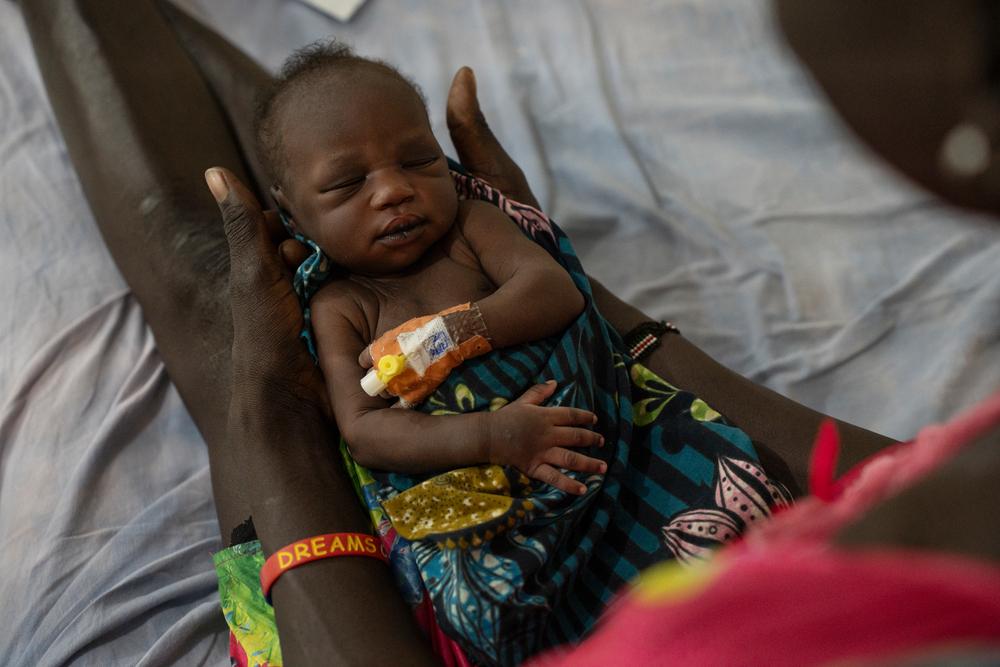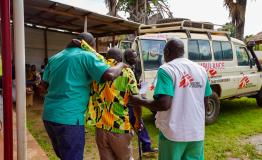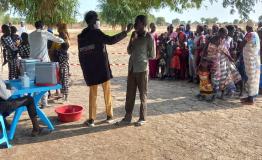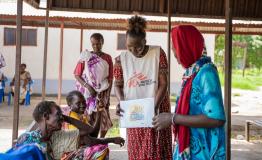Every attack on healthcare is unacceptable and has consequences. When two MSF boats were fired on as they crossed a river in South Sudan in January this year, we had to make a difficult decision to suspend our outreach activities due to safety concerns. Just three months later, MSF’s hospital in Ulang was attacked and looted, resulting in a full suspension of all activities. These events have led to devastating consequences for people’s access to healthcare.
The river Sobat is flowing calmly through Upper Nile state, South Sudan. It is 2 pm on 15 January2025, and Chuol and his team are on their way back to MSF’s project base in Ulang town after delivering medical supplies to Nasir County hospital. Chuol is in charge of the outreach team,made up of six colleagues, travelling in two boats. As the boats sail across the river, the flags,clearly marked with the MSF logo, flutter in the wind.
Suddenly, the MSF team hears gunfire, and panic breaks out on board. Chuol reacts instinctively and jumps into the murky water.
In a nearby village Riek is going about his working day as a community health liaison – a role that functions as a link between MSF and the local community. He hears the gunshots and runs as fast as he can down to the river, where he sees an empty MSF boat drifting on the water.
“I was shocked, I thought my colleagues were dead,” says Riek.
Chuol manages to swim ashore. He tries to locate everyone in his team. Five of his team members have made it to safety, but one is missing.
Meanwhile, Riek hears someone calling his name. It is the missing team member, who jumped into the water, and is injured. Riek acts quickly. He gets hold of a canoe which he paddles out to his colleague. He manages to get him into the canoe. It turns out that the injury is minor, and the colleague is taken to MSF’s hospital in Ulang for treatment.
MSF has been providing healthcare in Ulang since 2018, running a hospital and outreach activities at 13 sites along the river. Our outreach teams provide basic medical care, supply patients with medication and refer patients to the hospital in Ulang. Following the incident on15 January, MSF was forced to take the difficult decision to suspend all outreach activities inthe area for security reasons. MSF also launched an investigation to find out exactly what happened.
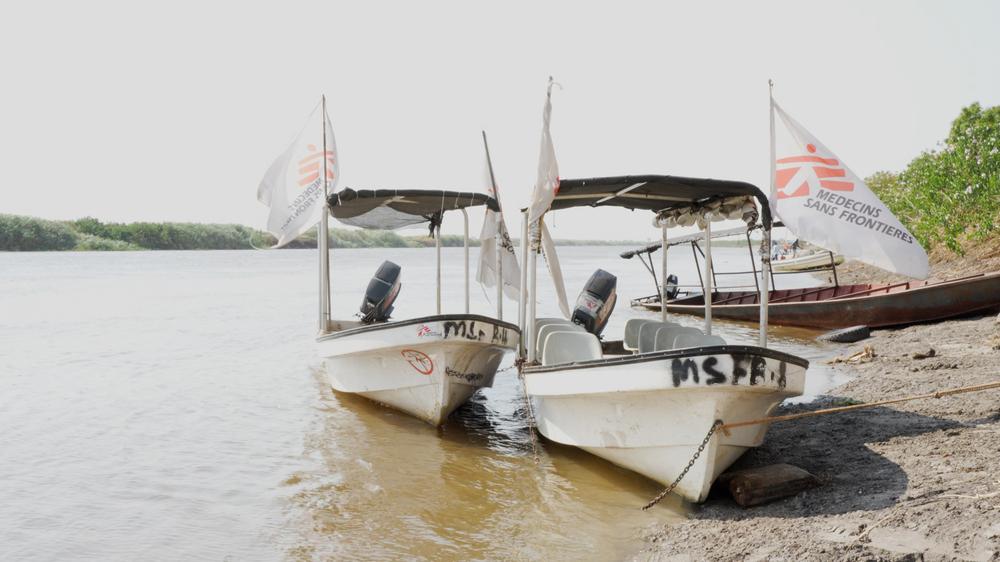
Hospital’s Lifesaving Work Goes On
The hospital in Ulang is enclosed by blue walls. Here, the MSF team provides services including maternity care, paediatric care and emergency care, in wards spread across several concrete buildings. Many of the beds are now empty.
“Since we had to suspend our outreach activities, we have had fewer patients than usual in the hospital,” explains Dr. Philip. “Without MSF's boats to transport patients to the hospital,patients living far away sometimes have to wait days, or even weeks, for a boat which they can take to Ulang. Those who eventually make it here are often in very poor condition.
”Apart from boats, the only transport option here is to go on foot, as most roads are blocked or damaged. During the rainy season, floods make it impossible to cross some areas and boats are often the only way to get around.
At the entrance to the maternity ward in Ulang hospital, an art piece covers the light green wall:black lines composed in an organic pattern forming the shape of a pregnant woman. In one of the rooms sits a woman who gave birth to stillborn twins a few days earlier, after arriving at the hospital too late for them to be saved.
She is about to share her story when a staff member comes to tell her that the boat she needs to take her home has arrived. It could be up to a week until the next boat comes. With the helpof her relatives, she quickly packs her things and hurries out of the hospital.
MSF midwife Veronica, takes up her story:
“She was from Nasir, close to where the attack happened. When complications arose during her labour, she had to get to a hospital as soon as possible. Since July 2024, the hospital in Nasir has not had the staff or technical resources to handle complicated deliveries, so she had to come here to Ulang. Normally, our mobile teams would have been able to pick her up by boat, but instead she had to wait two days for a boat to bring her here. When we were finally able to help her, it was too late, we couldn't hear any heartbeats from the twins in her stomach."
Veronica says she wishes the patient could have told us the story herself.
“She was angry and sad: sad about losing her twins and angry that the attack happened.
”Ulang is a volatile environment in which to live or work, affected by inter communal violence,armed fighting and displacement. Despite being used to the near-constant insecurity, the shooting on the river left a mark on Chuol and Riek.“
I had trouble sleeping the first few nights after the attack,” says Chuol.
“I felt a nervousness in my body for two days after witnessing the boats being shot at, says Riek.“The shock I felt when I thought my colleagues were dead stayed with me.”
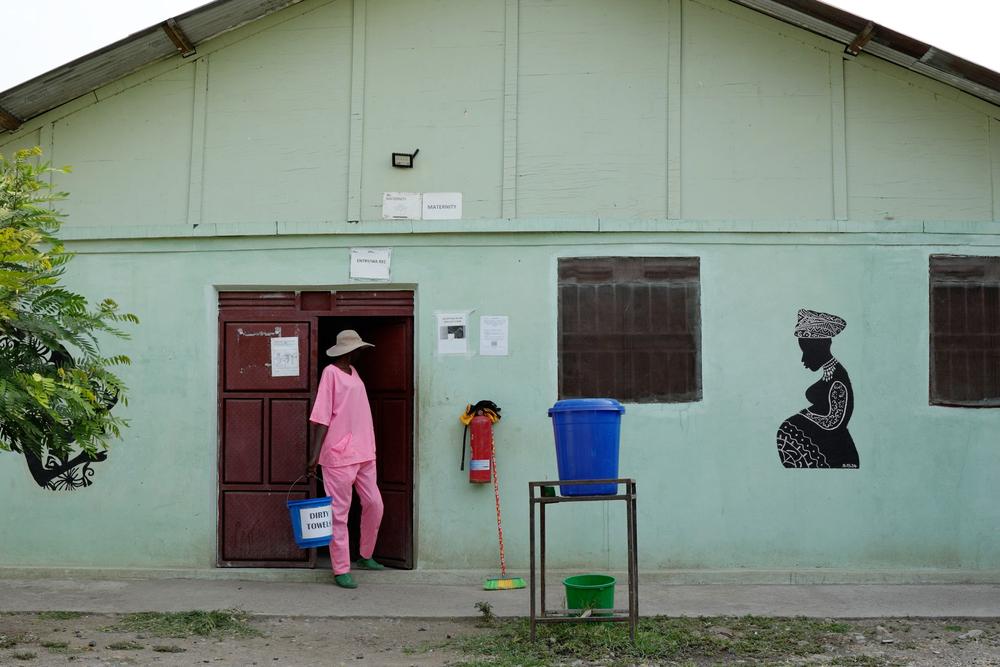
Violence has robbed vulnerable communities of their only hospital
Since mid-February 2025, escalating conflict between government forces and armed groups in Upper Nile has driven further instability. On the morning of 14 April 2025, dozens of armed men stormed MSF’s hospital and office in Ulang, threatening staff, and looting vital medical supplies and equipment. As a result, all medical services at the hospital have been suspended.
The area around Ulang is now left without a single functioning health facility. The attacks on MSF’s boats and the hospital are part of a broader pattern of insecurity affecting the provision of healthcare in the area. Violence forced the suspension of both outreach services and the hospital, and the cost will be paid by the vulnerable communities left without care.
On 3 May, the MSF hospital in Old Fangak, Jonglei state was deliberately bombed. The bombing has resulted in significant damage, including the complete destruction of the pharmacy, which was burned to the ground. This is where all our medical supplies for the hospital and our outreach activities were stored. Thousands of people have fled from the town. We evacuated the wounded and have opened a temporary health facility in a nearby town. However, Old Fangak hospital was the only hospital in the entire county and hospital-level care is now no longer available to the 110,000 people that it served.
